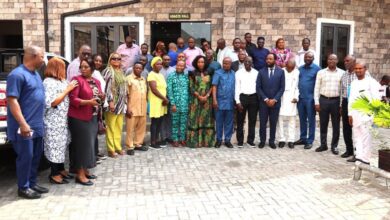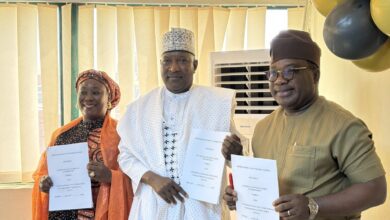
The Federal High Court Abuja, Monday, stopped the Independent National Electoral Commission, (INEC) from releasing voters’ register to the Rivers State Independent Electoral Commission, (RSIEC), for the purpose of conducting the October 5, 2024 Local Government election in the state.
The court in its judgement, also barred the Inspector General of Police(IGP) and the Department of the State Service (DSS) from participating and providing security for the conduct of the local government poll.
The All Progressives Congress, APC was before the court challenging the legality or otherwise of the processes leading to fixing of October 5, for the LGA election.
Justice Peter Lifu held that the RSIEC was wrong in fixing the October 5 date for the conduct of the poll when all relevant laws guiding the election had not been complied with.
Among others, the judge held that the Rivers State electoral body violated provisions of the local government election conduct law by not publishing the mandatory 90 days notice before fixing the date.
Also, in the judgement, the court held that the update and revision of voters’ register by INEC ought to have been concluded 90 days before an election date can be legally and validity fixed in law.
Therefore, the court ordered INEC not to make the certified voters’ register available to RSIEC until all relevant laws have been fully complied with.
It also barred RSIEC from accepting any voters’ register from INEC or using it for the purpose of the October 5 local governments poll.
The APC had dragged INEC, RSIEC, Rivers Attorney General, Inspector General of Police and the Department of the State Service DSS alleging irregularities and outright violations of laws in the ways and manners the Rivers state government was handling the election matters.
The party through its lawyers alleged that the mandatory provisions of law for publication of election notice 90 days before the election conduct was jettisoned.
APC also claimed that the mandatory conclusions of update and revision of voter register 90 days before the election was not complied with.
After reviewing affidavit in support of the case and counter affidavit against as well as other exhibits placed before the court, Justice Peter Lifu agreed with the plaintiff that virtually all the mandatory conditions precedent for conduct of valid poll had not been met by RSIEC.
The Judge held that RSIEC was bound by law to issue 90 days public notice before fixing the election date adding that doing otherwise, is an affront to the rule of law.
Justice Lifu also held that INEC was statutorily bound to conclude the update and revision of voter register 90 before the conduct of the election and before releasing same for conduct of any election.
He therefore nullified and set aside, all steps and decisions taken by RSIEC on the local government poll on the ground that the steps and decisions are illegal and unlawful.
The Judge subsequently barred INEC from releasing the voter register or any portion of it to the Rivers state government for the purpose of the October 5 local government election.
He further barred RSIEC from accepting or using any voter register from INEC for the conduct of the of the election until all relevant laws on conduct of local government polls are fully complied with.
The Inspector General of Police and Department of the State Service DSS were also separately barred from participating and providing security for the conduct of any unlawful election.
“Election is a process and all processes leading to the conduct of any election must be transparent and carried out in line with the provisions of the laws.
“Rules of law entails mandatory compliance with the law. There should be no secrecy on the issue of conditions precedent in the interest of democracy “, he said.
The Judge struck down section 60 (2) of the Rivers State Local Government election law signed by former governor Nyesom Wike on January 4, 2018 which prohibits filing of cases in respect of local government election by aggrieved parties or persons.
Justice Peter Lifu said that 1999 Constitution granted access to court for Nigerians aggrieved over any issue adding that on no ground would a local government law be allowed to be superior to the Constitution of the Federal Republic of Nigeria.






